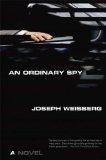Summary | Excerpt | Reviews | Beyond the book | Read-Alikes | Genres & Themes | Author Bio

Critics' Opinion:
Readers' Opinion:
First Published:
Jun 2007, 448 pages
Paperback:
May 2008, 832 pages
 Book Reviewed by:
Book Reviewed by:
Amy Reading
Buy This Book
Tim Weiner begins his history of the CIA with an unambiguous
rebuke: "The most powerful country in the history of civilization has failed to
create a first-rate spy service." He warns that the United States'
three-hundred-year dominance will evaporate "unless it finds the eyes to see
things as they are in the world." For all its covert activities, the CIA's
deepest secret, according to Weiner, is how little it knows about other
countries and how often it acts blindly, with dire consequences. Since its
inception in 1945, the agency has routinely put thousands of agents and their
informants in grave danger for mere scraps of intelligence. Just as routinely,
the CIA has failed to foresee major threats to American security; the deadly
blindsiding on 9/11 has a long and alarming pedigree.
Weiner documents how the agency's failures have been built into its very
structure and thus continue to recur with each new global conflict. The agency's
endemic problems include the battle for control between the White House and the
military, the tug of war between the two often incompatible missions of
intelligence gathering and covert operations, and the perennial lack of
qualified analysts who know the languages and cultures of the countries on which
they report. It is downright shocking to read how frequently American spooks are
conned by their sources, who feed them false intel for cash or for political
advantage. But the most interesting architectural weakness is the inherent clash
of values between the secrecy of spying and the openness of democracy.
Perhaps this explains why even the agency's putative successes have come at the
cost of the freedom it is supposed to champion. In 1953, the CIA funded the
overthrow of Iranian Prime Minister Mohammad Mossadeq, who had nationalized
Iran's oil production, and installed General Zahedi, who had pledged allegiance
to the Shah and his rightest regime, in his place. High on its first success at
altering the course of an entire nation, the agency next set its sights on Latin
America. In 1954, it helped overthrow the government of Guatemala and install a
military dictatorship friendly to the corporate interests of the United States.
Both operations were touted as the ultimate examples of the agency's power, but
Weiner shows that both barely succeeded only by "brute force and blind luck,"
not skill and knowledge, and both countries endured decades of repression and
violence from the regimes handpicked by the Americans. Covert action, it would
seem, advances private interests rather that the public good.
Weiner singles out only two brief moments in the agency's life as "halcyon
days." The first was when CIA Director Richard Helms did not bow to the
extraordinary pressure to doctor the grim facts of the Vietnam War for President
Johnson. The second was when Bob Gates took over as director just after the
Berlin Wall fell. In the wake of the CIA's jawdropping inability to foresee the
weakening of Soviet power, Gates reorganized the agency to make it smaller,
smarter, and more responsive to contemporary threats in a newly reconfigured
globe.
It must be said that Legacy of Ashes is, after all, an institutional
history, not a narrative history, which means that it lacks a singular plotline
and cast of characters. Weiner strings together six decades' worth of excellent
stories a fast clip and with appealing understatement. But I found it
occasionally difficult to keep track of all the bureaucrats, and sometimes
wished Weiner would slow down and take me to the scene instead of reporting it
with as many of the journalistic whos, whats, wheres, whys, and hows as he could
pack into this dense book.
One story that I was expecting to read never appeared: the story of how Weiner
researched and wrote the book itself. After all, how does a journalist
bring the clandestine to light? He tells us that the book is based on more than
50,000 government documents, 2000 oral histories, and 300 interviews, including
ten former directors of central intelligence. This is the first history of the
CIA to be entirely on the record, with no anonymous sources. And so I hunted
through the footnotes in search of additional details of how the evidence was
procured, but aside from listing his sources (which frequently include his own
articles in the New York Times), Weiner does not divulge how he was able
to get the story where others were stymied.
But it isn't fair to indict the book for what it isn't. Legacy of Ashes
is a myth-busting book. Weiner points out that the only thing the agency was
good at was propagating the image of itself as omniscient. Quite a few enemies
bought into that myth, thus protecting American interests even when its own
spies couldn't back up such bravado with action and intelligence. Such a myth
"held that the agency could change the world, and it helps explain why the CIA
is so impervious to change." It remains to be seen whether the agency will learn
from its latest scandal, the potentially criminal destruction of videotapes made
of the interrogation of terror suspects—but Weiner's book is a ripstop in the
fabric of American intelligence. Legacy of Ashes grants some of the
keen-eyed vision that the agency has lacked for so long.
![]() This review
first ran in the June 1, 2008
issue of BookBrowse Recommends.
This review
first ran in the June 1, 2008
issue of BookBrowse Recommends.

If you liked Legacy of Ashes, try these:

by Joseph Weisberg
Published 2009
A former CIA case officer’s novel about two embattled spies who go to extraordinary lengths to keep their informants out of harm’s way, published as vetted by the agency itself.

by Naomi Klein
Published 2008
The bestselling author of No Logo exposes the rise of "disaster capitalism" and destroys the myth of the global "free market".





The House on Biscayne Bay
by Chanel Cleeton
As death stalks a gothic mansion in Miami, the lives of two women intertwine as the past and present collide.

The Flower Sisters
by Michelle Collins Anderson
From the new Fannie Flagg of the Ozarks, a richly-woven story of family, forgiveness, and reinvention.

The Funeral Cryer by Wenyan Lu
Debut novelist Wenyan Lu brings us this witty yet profound story about one woman's midlife reawakening in contemporary rural China.
Your guide toexceptional books
BookBrowse seeks out and recommends the best in contemporary fiction and nonfiction—books that not only engage and entertain but also deepen our understanding of ourselves and the world around us.